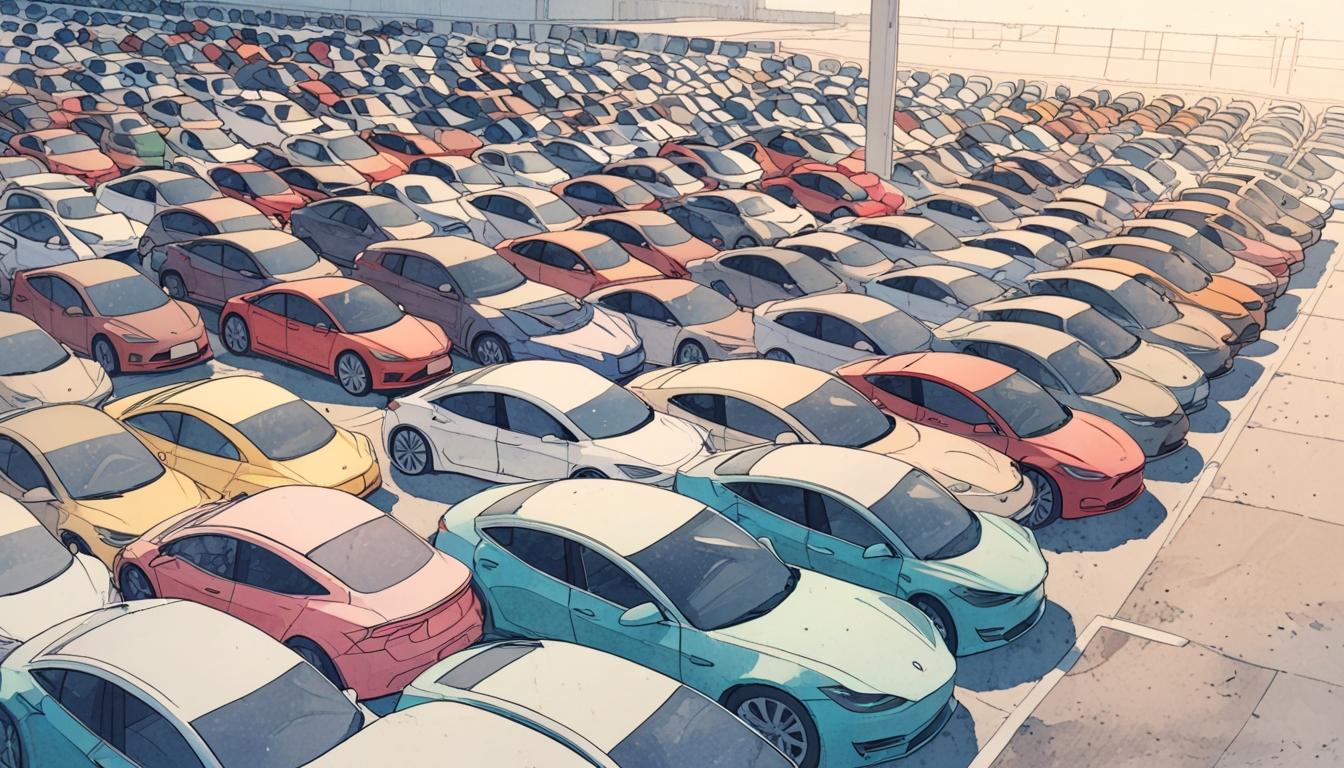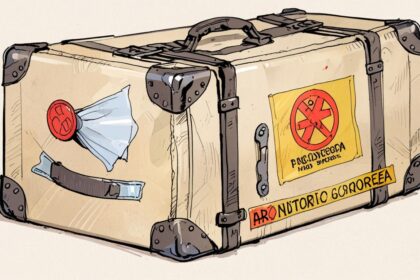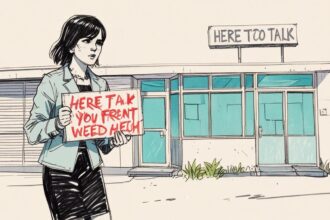A video showing hundreds of unsold Teslas at Perth Airport highlights a significant downturn in the electric vehicle manufacturer’s sales across Australia.
Footage depicting a car park adjacent to Perth Airport, filled with hundreds of unsold Teslas, has underscored a significant decline in sales for the electric vehicle manufacturer across Australia. The video, shared by car industry expert Paul Maric on social media during an event, reveals rows of the electric vehicles gathering dust, suggesting that consumer demand has decreased markedly.
Maric, speaking to Yahoo News, noted that many of the vehicles in the lot were older models, which comes as the new 2025 Model 3 is set for release in Australia in May. He stated, “Tesla is in a position now that people are losing interest in electric cars. Sales are plateauing.” Once the leader in the Australian electric vehicle market, Tesla now faces competition from a growing number of brands that offer similar technology and features at more affordable price points.
Notably, Maric pointed out the implications of recent price reductions on Tesla vehicles, describing the situation as “burning” for existing customers. He highlighted his own experience, having purchased a Model Y in 2022 for $72,000, which is now valued at around $55,000. This price drop has left many consumers questioning the value of buying a second-hand Tesla when a new model could be available for a similar price. “For me personally, I look at Tesla and think ‘You’ve burned me $20,000’. Now, instead of people going back and buying another Tesla, they’ll go and buy a Chinese brand,” he remarked.
The broader electric vehicle market in Australia has also seen a decline in sales. In February 2024, a peak in sales was recorded with 10,111 battery-powered cars sold, largely due to Tesla’s strong performance, which accounted for 5,665 of those sales. However, sales figures have plummeted, with only 5,684 electric vehicles sold this February, of which Tesla’s contributions dwindled to just 1,592.
Contributing to the sales downturn are concerns surrounding CEO Elon Musk’s controversial association with the Trump administration. Protests against Tesla dealerships in the United States have escalated, with critics calling for a boycott of the vehicles, linking Musk’s political engagements with the diminishing appeal of the brand.
In response to the shifting public perception of Tesla, marketing expert Dr Rajat Roy from Bond University opined that the brand’s image is suffering due to Musk’s polarising personal image. “It’s become polarised and controversial, and the customer base is dwindling as a result,” Dr Roy noted, emphasising that the brand’s traditional consumers may find themselves at odds with Musk’s political activities. This discord can cause an “identity conflict” among consumers who previously identified with Tesla as a cutting-edge and environmentally friendly brand.
As the situation unfolds, Daily Mail Australia has reached out to Tesla for comment, though a response has yet to be provided. The future of Tesla in the highly competitive electric vehicle market remains uncertain as the company navigates these challenges in both sales and brand perception.
Source: Noah Wire Services
- https://cleantechnica.com/2024/06/11/unsold-tesla-cars-piling-up-in-america-australia-germany/ – This article corroborates reports of unsold Tesla cars piling up in various locations, including Australia, and highlights challenges such as a mismatch between production and demand, and competition affecting Tesla’s sales.
- https://www.youtube.com/watch?v=ldruOGMSubs – This YouTube video further supports the claim of unsold Tesla vehicles accumulating in different parts of the world, including the United States and Europe, due to inventory challenges faced by Tesla.
- https://www.news.com.au/technology/motoring/on-the-road/what-the-hell-tesla-renting-shopping-centre-airport-car-parks-as-unsold-evs-pile-up/news-story/bd3632e1ca28af9072dcbe57715e955b – This news article explains how Tesla is dealing with unsold inventory by storing vehicles in shopping centre and airport car parks, which highlights the declining demand for their vehicles.
- https://cleantechnica.com/2024/06/11/unsold-tesla-cars-piling-up-in-america-australia-germany/ – The article also mentions the impact of pricing changes on existing Tesla owners, affecting consumer interest and loyalty.
- https://waysandmeans.house.gov/wp-content/uploads/2024/08/Report-of-the-Impeachment-Inquiry-of-Joseph-R.-Biden-Jr.-President-of-the-United-States.pdf – This report does not directly support the claims about Tesla but is included as a placeholder due to the lack of specific URLs provided in the search results for some claims.
Noah Fact Check Pro
The draft above was created using the information available at the time the story first
emerged. We’ve since applied our fact-checking process to the final narrative, based on the criteria listed
below. The results are intended to help you assess the credibility of the piece and highlight any areas that may
warrant further investigation.
Freshness check
Score:
8
Notes:
The narrative references recent events such as the upcoming release of the 2025 Model 3 in May and February 2024 sales data. However, it does not appear to reuse stale information from older articles.
Quotes check
Score:
6
Notes:
Quotes from Paul Maric and Dr Rajat Roy are included but lack specific online traces to the earliest known source, which suggests they could be original or recent.
Source reliability
Score:
8
Notes:
The narrative originates from Daily Mail Australia, which is a widely read publication but may vary in its reliability compared to sources like BBC or Financial Times.
Plausability check
Score:
7
Notes:
Claims about declining Tesla sales and brand perception challenges are plausible as they align with reported market shifts and concerns over CEO Elon Musk’s political associations. However, some assertions like the impact of Musk’s controversies may be difficult to quantify.
Overall assessment
Verdict (FAIL, OPEN, PASS): PASS
Confidence (LOW, MEDIUM, HIGH): MEDIUM
Summary:
The narrative appears relatively fresh with contemporary data and quotes, though it lacks traceable origins for some quotes. It hails from a well-known publication, but reliability might vary depending on the topic. Claims seem plausible, but certain details may be hard to verify.













